Hollywood & Spine Archive: Spy Hard
An overview of the novelization to GOLDENEYE, originally published in March 2019.
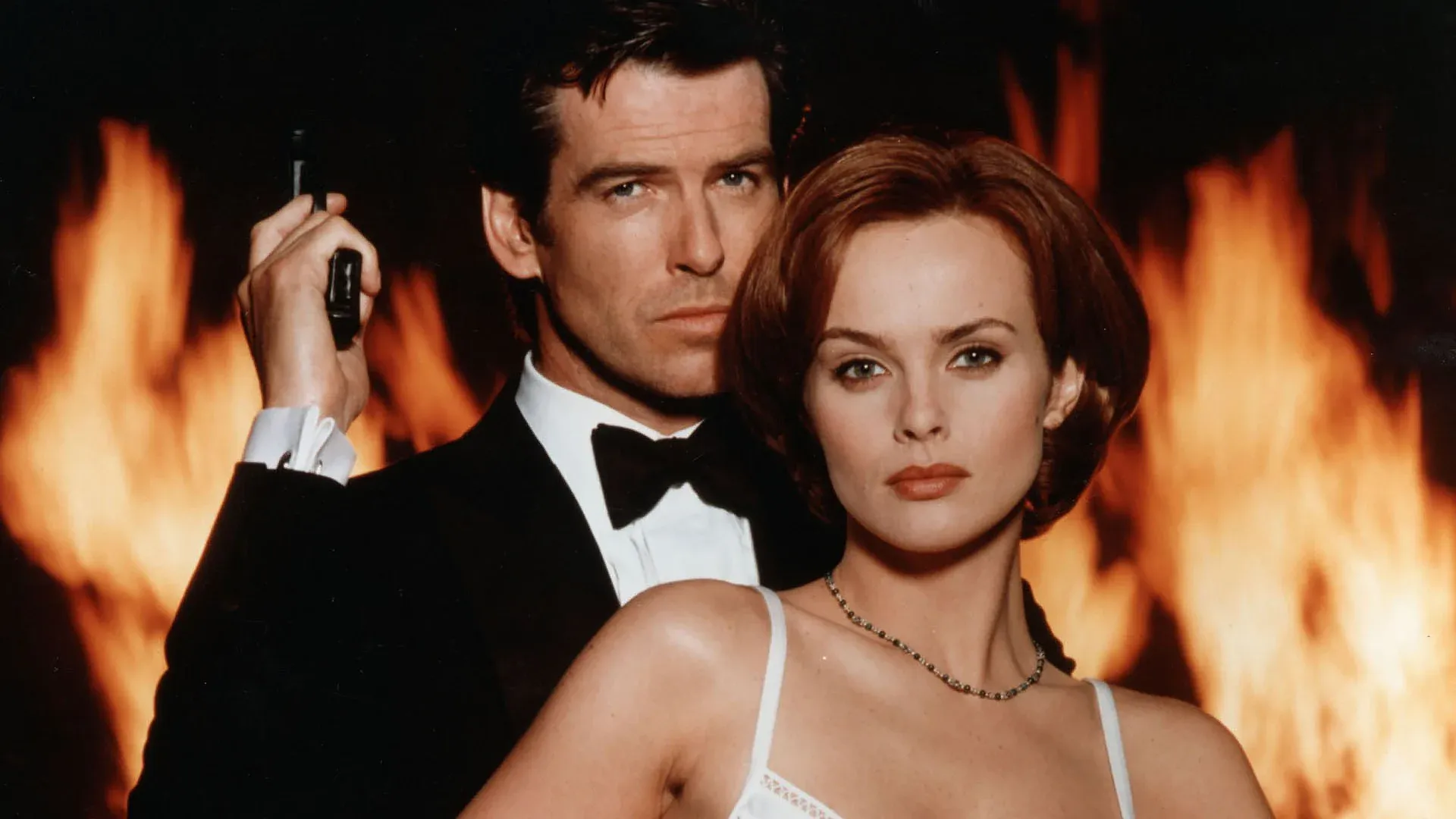
GoldenEye was another novelization I read years before I considered writing about them at all. I feel like I was rather hard on it, maybe? Sure, it's a very different take on one of the more fun Bond movies - let's be real: for as long as they've been around, there's maybe 10-12 good films in the series, tops - but then, again, so is the N64 game. And we all played the hell out of that one, didn't we? (Originally published 4/8/2019)
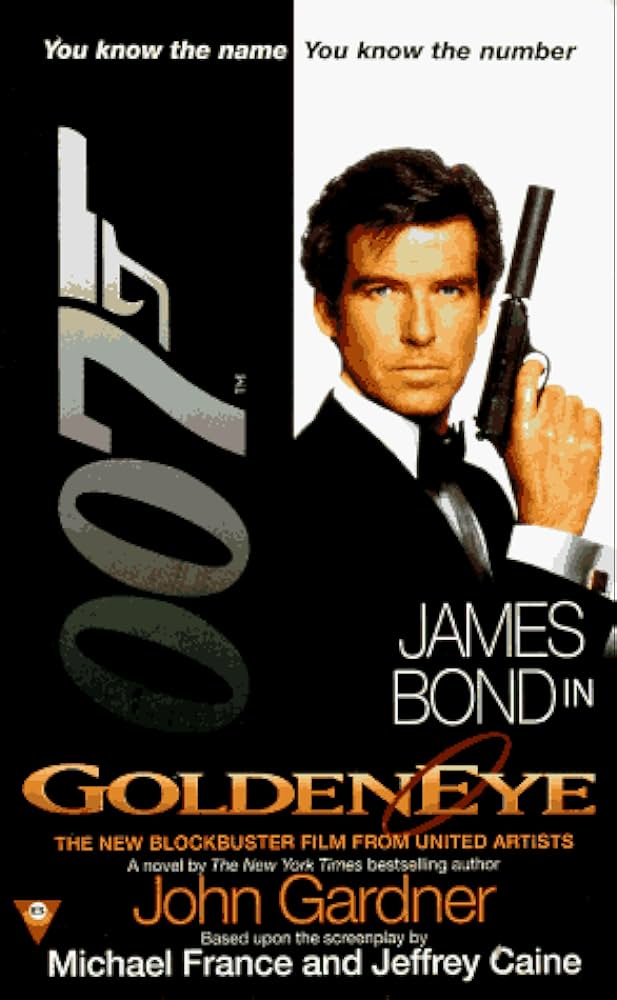
GoldenEye by John Gardner (based upon the screenplay by Michael France and Jeffrey Caine) (Boulevard Books, 1995)
The pitch: In post-Soviet Union Russia, a villainous syndicate steals a high-tech satellite in an attempt to hold the Western world hostage. In stopping the plot, British superspy James Bond faces his most formidable adversary yet.
The author: John Gardner (1926-2007) had proven himself adept at reviving British literary figures in the mid-'70s, penning a series of books starring the villainous Moriarty (Sherlock Holmes' rival). Since 1981, he'd been writing new Bond novels; GoldenEye was his second adaptation of a pre-existing Bond film, after 1989's Licence to Kill.
The lowdown: When GoldenEye was released, the James Bond franchise was at a crossroads. The franchise's new star, Pierce Brosnan, attempted to balance Sean Connery's chilled read of Ian Fleming's secret agent with Roger Moore's light, at times goofy touch. Additionally, in the six-year gap between films, the USSR had collapsed and Cold War-inspired stories were implausible. The 17th Bond flick would also have to shake off some of the series' old tropes, addressing some of its built-in misogyny (through Judi Dench's austere MI6 chief M, an anchor to the series even after Brosnan left) and giving Bond some personal stakes (the villain turned out to be Bond's vengeful ex-partner 006, left for dead in the story's prologue).
This new portrayal of Bond took the series to untold new heights, grossing more than any other film in the series at that point and introducing the character to a new generation. It's striking, then, that this adaptation of GoldenEye seems hellbent on resisting its modern trappings. There are likely two reasons for that: not just the writing, but perplexingly, the source material itself.
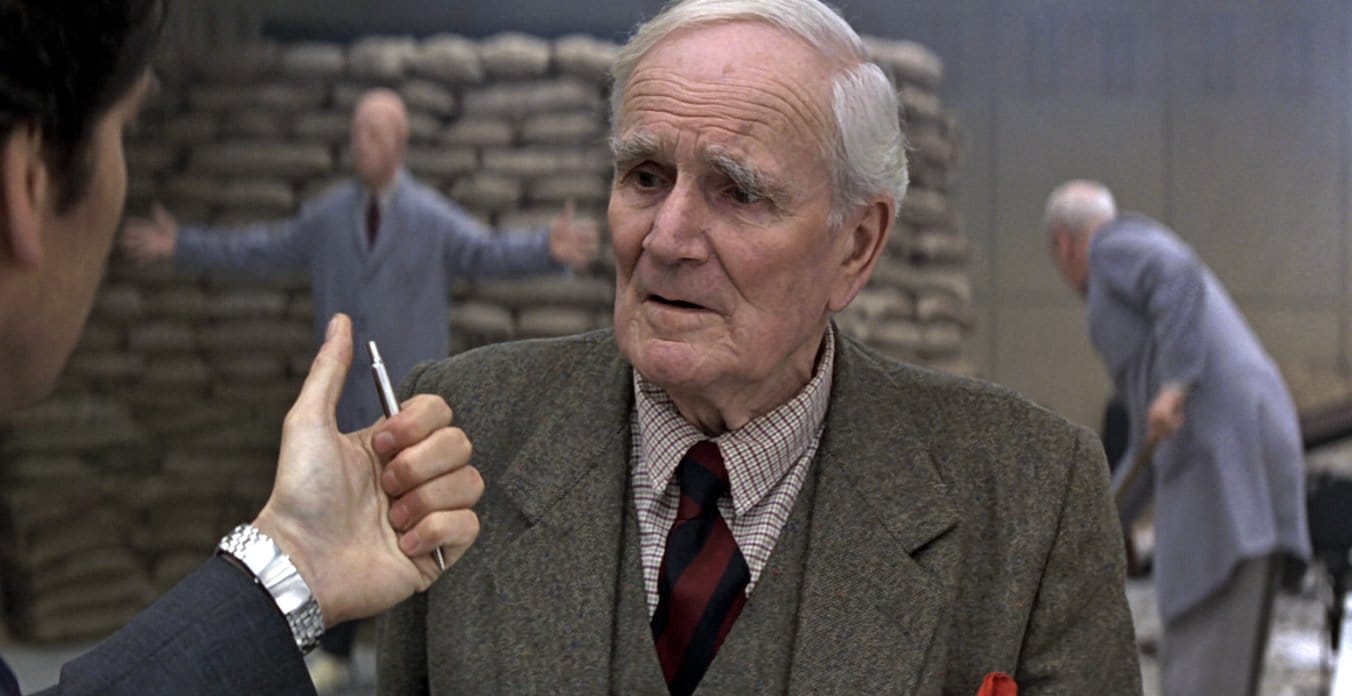
Unlike most of the previous films in the series, GoldenEye was an original story, conceived by Michael France (who penned the film Cliffhanger before writing the first draft of the film), not based on any of Fleming's stories, and certainly inspired by the pacing and tone of the films more than the novels. That difference only deepened as additional writers polished the script: Jeffrey Caine (The Constant Gardener), an uncredited Kevin Wade (Working Girl, Meet Joe Black) and finally Bruce Feirstein. (Feirstein turned out to be a key figure in Bond lore, writing or co-writing two more films in the series as well as several original video games.)
And yet, Feirstein receives no script credit on the novel; only Caine and France (who only received a story credit for the final film). It's accepted that novelizations can often be written based on earlier script drafts, but it's been assumed that GoldenEye's script was finalized before it was turned over to Gardner. (Though the exact timeline of drafts has never been confirmed, behind-the-scenes features on the GoldenEye Blu-ray date the Caine-France draft to July 1994, by which point Brosnan was already locked in to star. The additional drafts came to life within the next few months, as principal photography commenced at the start of 1995.)
Assuming this chain of events is fully correct, it proves that the best of the film's dialogue was Feirstein's, who wrote more in favor of pithy patter than puns. In the first few pages of the book, Bond executes two Soviet guards playing chess; his eye-rolling response is "Checkmate." Yet Bond's energetic dialogue with gadgets expert Q (a mainstay of the franchise for many years) is glossed over on the page. Perhaps the silliest translation from film to book is Bond's last words before defeating the evil Alec Trevelyan. In the film, it echoes one of the first things we hear Alec say to Bond in the film:
TREVELYAN
For England, James?
BOND
No. For me.
And how is that simple, impactful exchange delivered in prose?
"Now, James, it's time for our last goodbye, I think." Trevelyan stepped down to the rung directly above Bond and raised his booted foot to bring it down on Bond's hand. As he did so, the rung gave way with a sharp crack.
He felt Trevelyan's body brush against his as he dropped. In a reflex, he grabbed with one hand and caught Trevelyan's left wrist.
The man looked up at him, sweat and terror on his face. "James," he called, his eyes pleading, "Haul me up. For heaven's sake...for old time's sake, haul me up."
"Go to hell!" Bond shouted and released Trevelyan, who hit the antenna and, screaming, dropped the long way down to the dish.
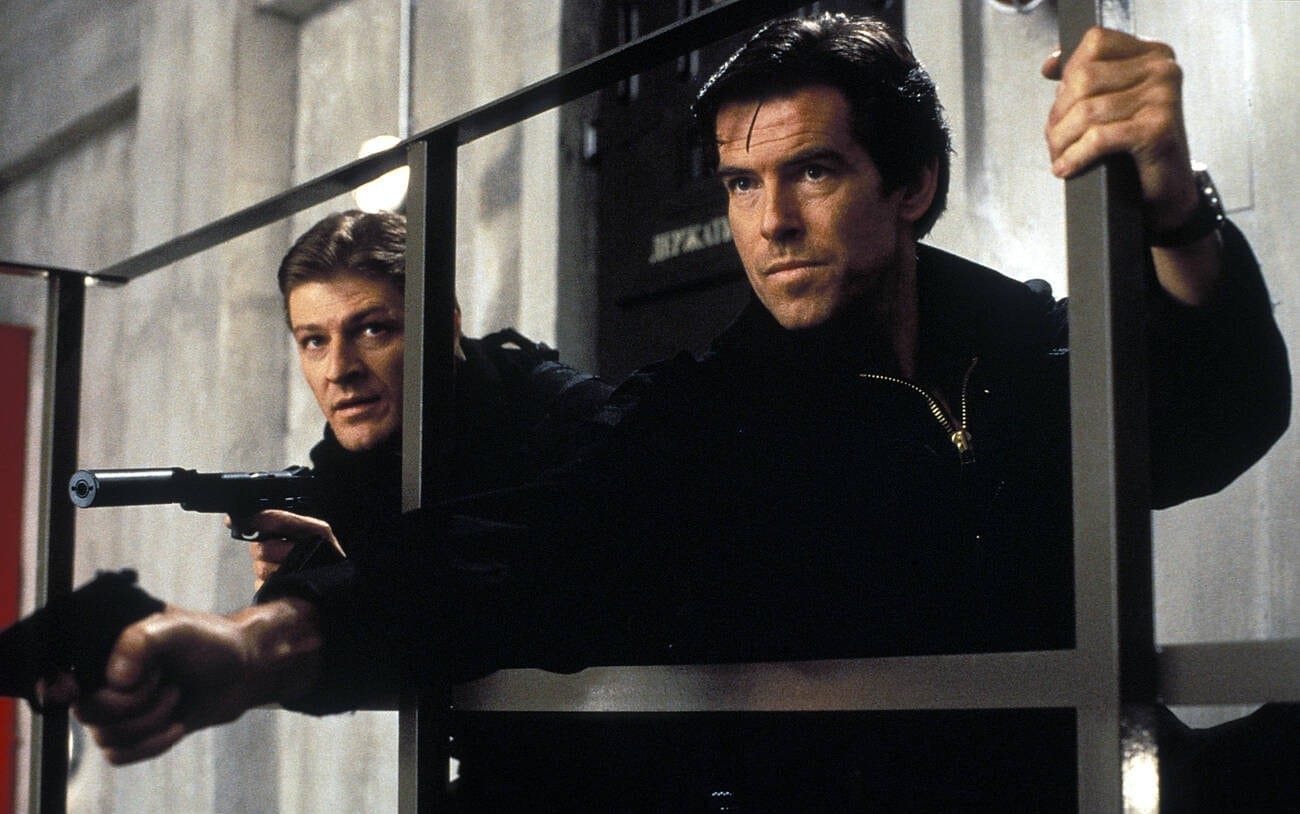
Imagine James Bond barking "Go to hell!" I bet you can't, or at least shouldn't! But we can't solely blame the script drafts. Gardner's mimicry of Fleming's blunt Bondian prose is also a bit heavy-handed. (Don't forget: it was Richard Maibaum's screenwriting work on 13 of the first 16 Bond films that first gave the series its foundation on smart-ass one-liners.) The paperback's near 300-page length is padded by a lot of technical mumbo-jumbo and excessive picture-painting. Whole paragraphs around bullet construction, explaining a secondary villain's fear of tanks, slickly lascivious description of characters' sexual exploits - it's all here, threatening to turn Bond into a horny Jason Bourne novel.
Gardner's Bond novels maintained strict continuity with Fleming's original books, which posed a problem when he adapted Licence to Kill, a film in which Bond's friend, CIA agent Felix Leiter, is tortured and maimed by a supervillain's shark. This idea was borrowed from the second Bond book, Live and Let Die, meaning Gardner's readers had to imagine the same incapacitating torture happening to a person twice. Maybe, as was the case with the film series, the books just needed new blood...and they in fact would get just that in two years' time, when Raymond Benson was hired to write new Bond novels as well as all the other adaptations of Brosnan's films.
The cutting room floor: The book opens with an extended version of Bond's infiltration of (and bungee-jumping off of) the dam - heavily truncated in the movie - but GoldenEye follows the beats of its script almost to a T. The most hilarious change I'd like to point out: when speaking with the arms dealer Valentin midway through the movie, his mistress Irina (played by a then-unknown Minnie Driver) is not singing Tammy Wynette's "Stand by Your Man" but Counting Crows' "Raining in Baltimore," which is hilariously specific.
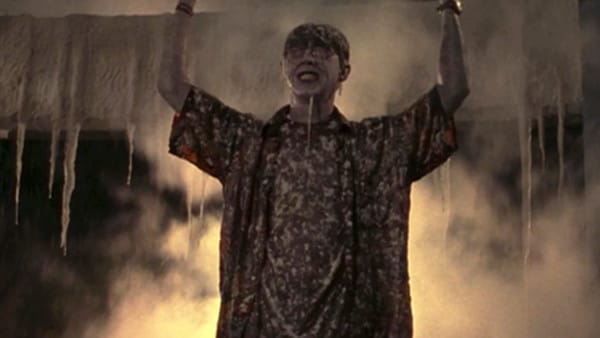
The last word: If you want to imagine how GoldenEye would have played out as a drier Timothy Dalton vehicle, this may be the book for you. Otherwise, you're better off interacting with the best adaptation of the film: the Nintendo 64 game.
